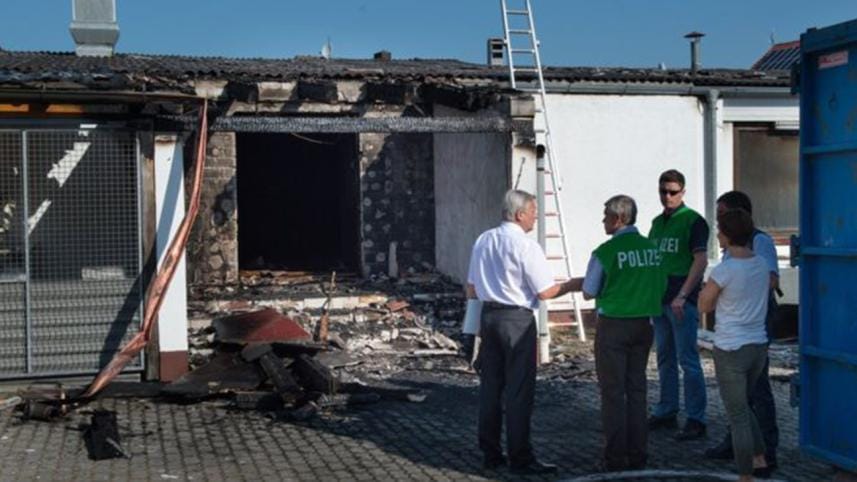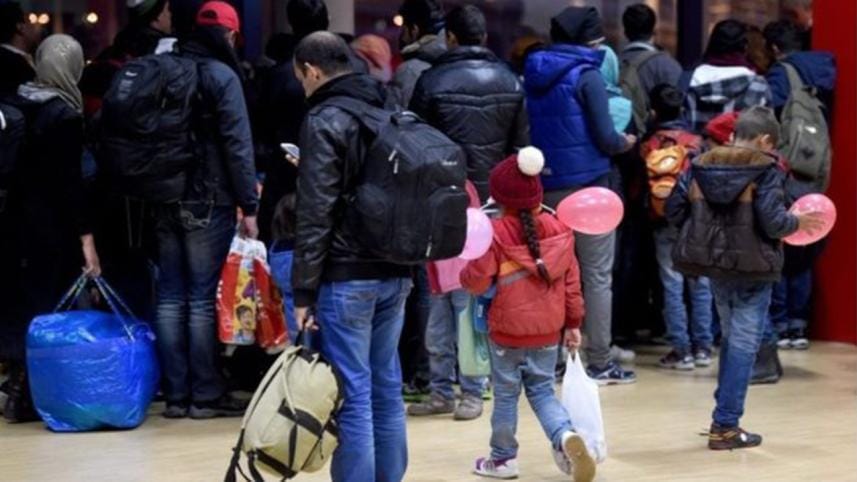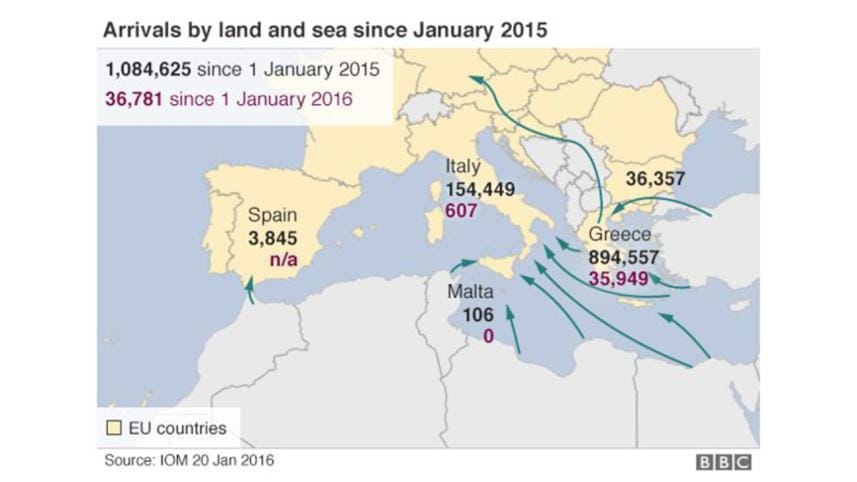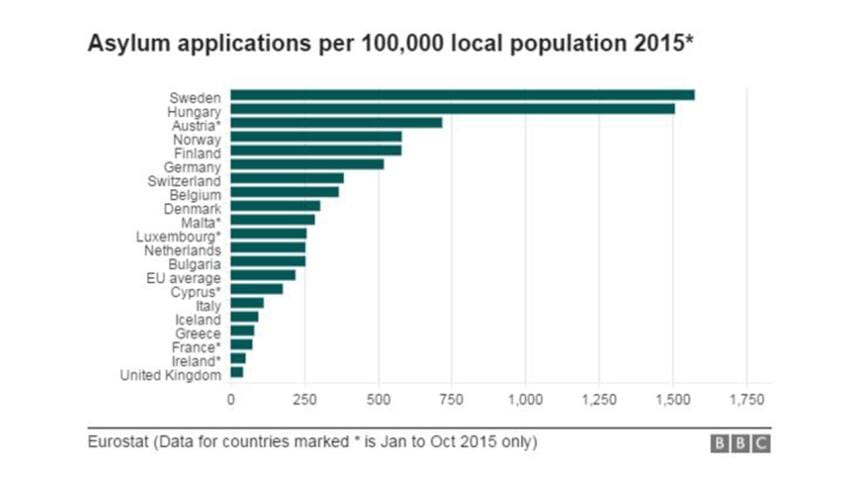Migrant hostel attacks soar in Germany

Five times more attacks were carried out on migrant hostels in Germany last year than in 2014, German police say.
The total for 2015 was 1,005, compared with 199 in 2014, the police report said. Far-right activists are suspected in 90% of the cases.
Last year a record 1.1 million people sought asylum in Germany - many from war-torn Syria. Many local authorities have struggled to house them.
Germany is expanding its list of safe countries, hoping to curb the influx.
The governing coalition plans to declare Morocco, Algeria and Tunisia safe countries of origin, making it easier to send migrants back, said Vice-Chancellor Sigmar Gabriel.

Last year Germany did the same for several Balkan nations - including Albania, Bosnia-Hercegovina and Kosovo - to cut the large numbers of migrants claiming asylum. Very few of their applications are granted.
The police say the biggest rise in attacks on migrant hostels last year was registered in the mainly industrial state of North Rhine-Westphalia.
State Interior Minister Ralf Jaeger said "investigators have noticed a marked increase in aggressive language" towards migrants on the internet.

Overnight a hand grenade was thrown at a migrant hostel in the state of Baden-Wuerttemberg. A security man found the unexploded grenade, in Villingen-Schwenningen.
Most of the thousands of migrants arriving daily on Greek islands hope to get asylum in Germany.
On Thursday 26 migrants drowned off a Greek island after their boat capsized.
The migrants died near the island of Samos, near Turkey. Ten of the victims were children.
In other developments:
-- Six bodies were discovered by the Italian navy in a sinking dinghy off the Libyan coast
-- The Netherlands proposed sending migrants reaching Greece back to Turkey by ferry
-- Sweden said as many as 80,000 people who arrived to the country last year could fail in their requests for asylum and face deportation

Where Europe is failing on migrants
-- The 28 member states have not agreed on an EU-wide mechanism for relocating migrants, to ease the burden on Greece and Italy; only small groups have been relocated so far - and several states in Central and Eastern Europe refuse to accept migrants
-- The Schengen agreement on freedom of movement is in jeopardy - Hungary fenced off its borders with Serbia, Croatia and Slovenia; meanwhile Germany, Austria, Denmark, Sweden, Norway and France have also reimposed border controls
-- The Dublin regulation, under which refugees are required to claim asylum in the member state in which they first arrive, is not working effectively; countries are no longer sending back migrants to their first point of entry to the EU
-- Thousands of migrants - many of them Syrian war refugees - still arrive daily from Turkey
-- Processing of asylum applications is slow and there is a big backlog - so reception centres are overcrowded
-- Germany - the main destination for migrants - is rethinking its open-door policy, partly because of outrage over assaults on women in Cologne at New Year
 For all latest news, follow The Daily Star's Google News channel.
For all latest news, follow The Daily Star's Google News channel.
Comments